Ben Conniff co-founded Luke’s Lobster, a sustainable seafood company with a restaurant group, branded grocery business, and direct-to-consumer online market, in 2009. Luke’s is a Certified B Corp and has the highest B Corp score of any restaurant group or seafood company in the U.S.. Mr. Conniff has worn almost every hat through Luke’s Lobster’s evolution but currently focuses on the brand’s innovation, environmental sustainability, and social responsibility. He’s the author of “Real Maine Food: 100 Plates from Fishermen, Farmers, Pie Champs, and Clam Shacks” and has also written for Saveur, Food 52, GQ, Smithsonian, Yankee, and Tasting Table. Mr. Conniff sits on the board of the Maine Lobster Marketing Collaborative and the Maine Business Immigration Coalition, and is an advisor to many startup food and beverage companies. He lives in Portland, Maine, with his wife Liz and his dog Taco.
2022 Cornell Business Impact Symposium
Event Overview
A distinguished panel representing multiple stakeholders of the blue economy will explore how they interact with the ocean and help create a more robust and resilient food system. This webinar is hosted by the Center for Sustainable Global Enterprise in collaboration with the Cornell Sustainability Consulting club as part of their annual Cornell Business Impact Symposium.
What You'll Learn
- The importance of the ocean
- The current state and exploitation of the ocean
- Why a blue economy is essential for a healthy future
Speakers
Dr. Bruce Monger is a Stephen H. Weiss Provost Teaching Fellow and the Director of Undergraduate Studies in the Department of Earth and Atmospheric Sciences at Cornell University. He received a Ph.D. in Oceanography from the University of Hawaii in 1993 and served as a postdoctoral fellow at the NASA Goddard Space Flight Center before joining the faculty at Cornell in 1997.
Dr. Monger’s research centers on the use of orbiting satellites to study how variability in ocean dynamics impacts marine ecosystems at ocean basin and global scales. He also teaches an introductory oceanography course at Cornell that has grown to become the most popular course at Cornell, with an enrollment of over 1,000 students. A major theme of the oceanography class addresses human impacts on the global ocean and the need for bottom-up citizen activism to force leaders to enact policies that will lead to a sustainable future.
Dr. Nancy Knowlton is a coral reef biologist who spent much of her career at the Smithsonian Institution; in Panama at the Smithsonian Tropical Research Institute; and at the National Museum of Natural History in Washington, D.C., prior to moving to Brooksville in Maine. She was also a professor at Yale and the founding director of the Center for Marine Biodiversity and Conservation at the Scripps Institution of Oceanography, University of California San Diego. Dr. Knowlton is the author of “Citizens of the Sea” and former editor-in-chief of The Smithsonian’s Ocean Portal.
In 2013 Dr. Knowlton was elected to the American Academy of Arts and Sciences and to the U.S. National Academy of Sciences. She is a winner of the Peter Benchley Prize, the Heinz Award, the Women’s Aquatic Network 2018 Woman of the Year award, the National Marine Sanctuary Foundation Lifetime Achievement Award, and the International Coral Reef Society’s Darwin Medal. In 2014, Dr. Knowlton helped launch #OceanOptimism on Twitter, where you can follow her at @SeaCitizens.
John Virdin has over 20 years’ experience in studying and advising on government policies to regulate the human use of the oceans, particularly marine conservation policies to reduce poverty throughout the tropics. His focus has been largely on managing fisheries for food and livelihoods, expanding to broader, ocean-based economic development policies, coastal adaptation, and more recently the reduction of ocean plastic pollution.
Dr. Virdin directs the Ocean and Coastal Policy Program at the Nicholas Institute for Environmental Policy Solutions, aiming to connect Duke University’s science and ideas to help policy makers solve ocean sustainability problems. He has collaborated in this effort with the United Nations Food and Agriculture Organization and the United Nations Environment Program, as well as regional organizations such as the Abidjan Convention secretariat, the Organization of Eastern Caribbean States, the Sub Regional Fisheries Commission of West Africa, and the parties to The Nauru Agreement for tuna fisheries management in the Western Pacific. He co-created and teaches an introductory course for undergraduate students to understand the role of ocean policy in helping solve many of society’s most pressing development challenges on land.
Dr. Virdin’s work has been published in books, edited volumes, and a number of professional journals, including Nature Ecology and Evolution, Ecosystem Services, Environment International, Fish and Fisheries, and Marine Policy, as well as contributions to China Dialogue, The Conversation, the Economist Intelligence Unit, and The Hill.
Prior to coming to Duke in early 2015, Dr. Virdin worked for 12 years at the World Bank, helping the organization increase its funding for ocean conservation and fisheries management to more than $1 billion. His work led to the development of programs that provided more than $125 million in funding for improved fisheries management in six West African states and some $40 million for fisheries and ocean conservation in a number of Pacific Island states. Dr. Virdin supported and acted as program manager from 2012 through 2014 for the World Bank’s Global Partnership for Oceans, a coalition of more than 150 governments, companies, nongovernmental organizations, philanthropies, and multilateral agencies.
Mark Huang co-founded SeaAhead in 2018, after 15 years of cleantech venture experience. He has been on the forefront of emerging sustainability-related venture sectors and is passionate about bringing his venture, maritime, cleantech, and economic development experience to bear for the “triple bottom line” opportunities in today’s blue economy. Mr. Huang started his career as a naval architect in shipyards.
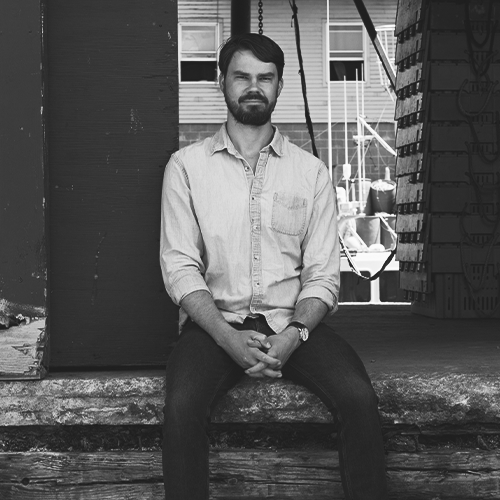
Ben Conniff co-founded Luke’s Lobster, a sustainable seafood company with a restaurant group, branded grocery business, and direct-to-consumer online market, in 2009. Luke’s is a Certified B Corp and has the highest B Corp score of any restaurant group or seafood company in the U.S.. Mr. Conniff has worn almost every hat through Luke’s Lobster’s evolution but currently focuses on the brand’s innovation, environmental sustainability, and social responsibility. He’s the author of “Real Maine Food: 100 Plates from Fishermen, Farmers, Pie Champs, and Clam Shacks” and has also written for Saveur, Food 52, GQ, Smithsonian, Yankee, and Tasting Table. Mr. Conniff sits on the board of the Maine Lobster Marketing Collaborative and the Maine Business Immigration Coalition, and is an advisor to many startup food and beverage companies. He lives in Portland, Maine, with his wife Liz and his dog Taco.
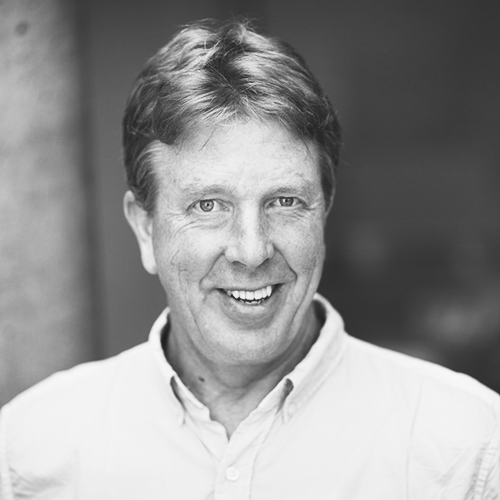
Dr. Bruce Monger is a Stephen H. Weiss Provost Teaching Fellow and the Director of Undergraduate Studies in the Department of Earth and Atmospheric Sciences at Cornell University. He received a Ph.D. in Oceanography from the University of Hawaii in 1993 and served as a postdoctoral fellow at the NASA Goddard Space Flight Center before joining the faculty at Cornell in 1997.
Dr. Monger’s research centers on the use of orbiting satellites to study how variability in ocean dynamics impacts marine ecosystems at ocean basin and global scales. He also teaches an introductory oceanography course at Cornell that has grown to become the most popular course at Cornell, with an enrollment of over 1,000 students. A major theme of the oceanography class addresses human impacts on the global ocean and the need for bottom-up citizen activism to force leaders to enact policies that will lead to a sustainable future.
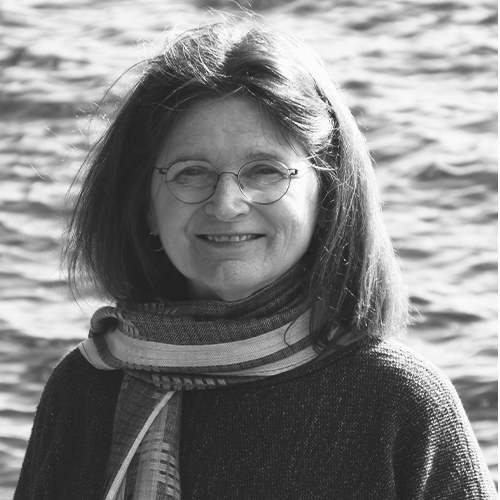
Dr. Nancy Knowlton is a coral reef biologist who spent much of her career at the Smithsonian Institution; in Panama at the Smithsonian Tropical Research Institute; and at the National Museum of Natural History in Washington, D.C., prior to moving to Brooksville in Maine. She was also a professor at Yale and the founding director of the Center for Marine Biodiversity and Conservation at the Scripps Institution of Oceanography, University of California San Diego. Dr. Knowlton is the author of “Citizens of the Sea” and former editor-in-chief of The Smithsonian’s Ocean Portal.
In 2013 Dr. Knowlton was elected to the American Academy of Arts and Sciences and to the U.S. National Academy of Sciences. She is a winner of the Peter Benchley Prize, the Heinz Award, the Women’s Aquatic Network 2018 Woman of the Year award, the National Marine Sanctuary Foundation Lifetime Achievement Award, and the International Coral Reef Society’s Darwin Medal. In 2014, Dr. Knowlton helped launch #OceanOptimism on Twitter, where you can follow her at @SeaCitizens.
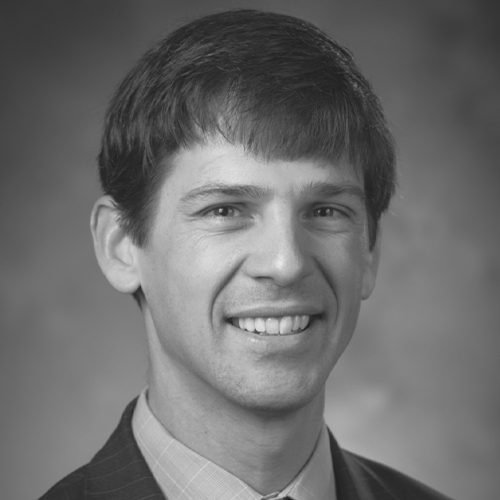
John Virdin has over 20 years’ experience in studying and advising on government policies to regulate the human use of the oceans, particularly marine conservation policies to reduce poverty throughout the tropics. His focus has been largely on managing fisheries for food and livelihoods, expanding to broader, ocean-based economic development policies, coastal adaptation, and more recently the reduction of ocean plastic pollution.
Dr. Virdin directs the Ocean and Coastal Policy Program at the Nicholas Institute for Environmental Policy Solutions, aiming to connect Duke University’s science and ideas to help policy makers solve ocean sustainability problems. He has collaborated in this effort with the United Nations Food and Agriculture Organization and the United Nations Environment Program, as well as regional organizations such as the Abidjan Convention secretariat, the Organization of Eastern Caribbean States, the Sub Regional Fisheries Commission of West Africa, and the parties to The Nauru Agreement for tuna fisheries management in the Western Pacific. He co-created and teaches an introductory course for undergraduate students to understand the role of ocean policy in helping solve many of society’s most pressing development challenges on land.
Dr. Virdin’s work has been published in books, edited volumes, and a number of professional journals, including Nature Ecology and Evolution, Ecosystem Services, Environment International, Fish and Fisheries, and Marine Policy, as well as contributions to China Dialogue, The Conversation, the Economist Intelligence Unit, and The Hill.
Prior to coming to Duke in early 2015, Dr. Virdin worked for 12 years at the World Bank, helping the organization increase its funding for ocean conservation and fisheries management to more than $1 billion. His work led to the development of programs that provided more than $125 million in funding for improved fisheries management in six West African states and some $40 million for fisheries and ocean conservation in a number of Pacific Island states. Dr. Virdin supported and acted as program manager from 2012 through 2014 for the World Bank’s Global Partnership for Oceans, a coalition of more than 150 governments, companies, nongovernmental organizations, philanthropies, and multilateral agencies.
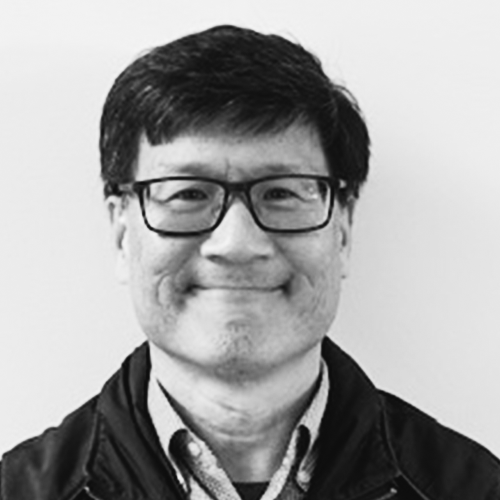
Mark Huang co-founded SeaAhead in 2018, after 15 years of cleantech venture experience. He has been on the forefront of emerging sustainability-related venture sectors and is passionate about bringing his venture, maritime, cleantech, and economic development experience to bear for the “triple bottom line” opportunities in today’s blue economy. Mr. Huang started his career as a naval architect in shipyards.
- View slide #1
- View slide #2
- View slide #3
- View slide #4
- View slide #5
View Keynote by completing the form below.
You're Registered!
